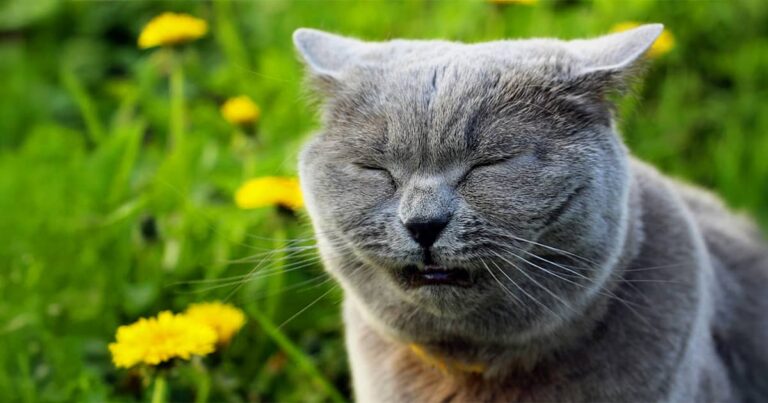If your cat is having trouble urinating, eliminating outside the litter box or urinating frequently, there are probably a few medical conditions that come to mind as you’re driving them to the veterinary clinic — urinary tract infection, bladder stones or maybe even cancer. But your kitty’s urinary troubles may not actually be caused by bacteria or cancerous cells: they may be caused by stress.
When veterinarians have excluded diseases through diagnostic tests like blood tests, urinalysis, urine culture, X-rays or ultrasound, they may label the cause of a cat’s cystitis (bladder inflammation) as “idiopathic.” This means that the cause is unknown. But research has suggested that stress could be a contributing factor to feline idiopathic cystitis (FIC) and can affect multiple systems in the body, not just the urinary system. The combination of health problems is why FIC can also be known as “Pandora syndrome,” a term originally coined by Dr. C.A. Tony Buffington while researching the reason behind unexplained urinary issues in cats.
Unboxing Pandora Syndrome
In an article written for Today’s Veterinary Practice, Dr. Buffington explains that the name “Pandora syndrome” came from decades of clinical experience and scientific research with cats who showed signs of chronic lower urinary tract issues. Similar to the myth where Pandora released multiple problems into the world, Dr. Buffington found that some cats with chronic urinary problems also had histories of other chronic health issues that affected multiple organ systems. But the most interesting finding was that when most of the cats with urinary issues were housed in an environmentally enriched colony (i.e., a happy place for cats to live), their clinical signs resolved. This partly led to the idea that the urinary issues were due to a urinary bladder disorder not a disease.
Dr. Buffington describes Pandora syndrome as an “anxiopathy,” a pathologic condition caused by constant anxiety from a perceived threat that causes chronic activation of the central stress response system. In other words, rather than feeling anxious occasionally (e.g., when they are startled), cats with Pandora syndrome are on alert and anxious all of the time, which can cause multiple health issues, including urinary problems. There are complex interactions between the nervous system, adrenal glands and bladder in cats with FIC (Pandora syndrome).
The Many Ills of Pandora Syndrome
Dr. Buffington explains that Pandora syndrome can present many different clinical signs, and there are many possible reasons behind those symptoms, which is why Pandora syndrome is partly diagnosed by the exclusion of other health issues. Clinical signs of Pandora syndrome or feline idiopathic cystitis that may be present include:
- Hiding, overgrooming and behavioral changes
- Crying when urinating
- Eliminating outside the litter box or going to the litter box more often
- Obesity and diabetes
- Gastrointestinal issues
- Loss of appetite
- Urinary stones, interstitial cystitis, chronic kidney disease
- Other health issues
According to Dr. Buffington, cats with Pandora syndrome typically have a history of a traumatic experience early in life (like being orphaned or abandoned) or have experienced stressful events. This is combined with multiple health issues that come and go depending on the environment they’re in. The Pandora syndrome diagnosis is likely the correct one if all of the clinical signs the cat displays disappear after environmental changes are made using a process called multimodal environmental modification (MEMO).
A Memo on MEMO
Dr. Buffington describes MEMO as creating a setting that allows cats to feel safe, to have unrestricted access to a variety of toys and activities, and to interact with other animals (including people). It also includes supplying plenty of resources for all cats in the home. Instead of applying the 1 + 1 rule to just the litter box (one per cat plus one), the 1 + 1 rule is applied to all food bowls, water bowls, resting areas, scratching posts, etc., to help reduce conflict between cats.
To reduce stress, cats should have access to a safe place to hide, a comfortable bed and plenty of places for scratching, climbing and resting, preferably in multiple locations. Their food and water bowls should be in a quiet location, and they should be given opportunities to exhibit natural behaviors like stalking and pouncing (e.g., through toys and food puzzles that are also rotated to provide variety). And they need some one-on-one time with their human — which could be grooming, petting or playing, depending on the personality of the cat and what they prefer.
Keep Pandora Syndrome Contained by Reducing Stress
As well as enriching the cat’s environment, it’s also important to try to remove or modify anything that may be causing the cat to feel stressed. Here are a list of common cat stressors.
- Changing environments (e.g., moving houses or moving furniture)
- Stress among people in the home (e.g., arguments, illness, final exams)
- Conflict between pets, particularly cat-cat aggression
- A new pet or animal in the home, or a loved one leaving home
- Construction inside or outside the home
- Changes to schedules (e.g., mealtime, owner arrival or departure times)
- A stray cat outside the home’s window
- Changing to a new brand of cat food
All Cats Need an Enriched Environment
In the article, Dr. Buffington explains that a lack of environmental enrichment isn’t necessarily the cause of Pandora syndrome; it just increases vulnerability to it in some cats. But Dr. Buffington does emphasize that all cats should be provided with environmental enrichment, regardless of their health status, as it is important for their health and welfare.
Consult your veterinarian if you think your cat may have a urinary issue. They can diagnose the problem and recommend treatment options and, if appropriate, environmental modifications to help provide your cat with some relief.
RELATED POST: Meet Your Cat’s Environmental Needs to Reduce Stress and Urinary Issues








